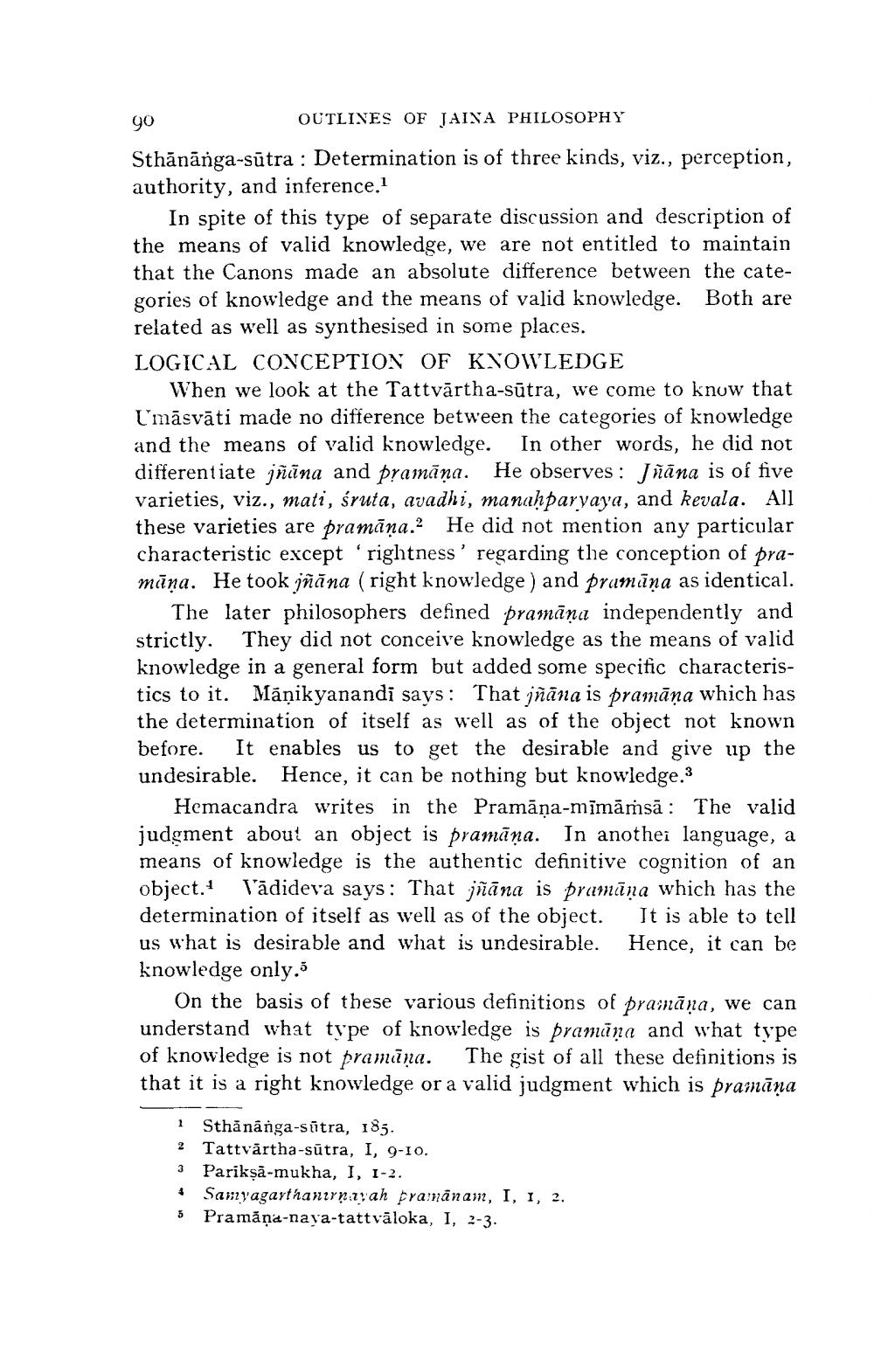________________
90
OUTLINES OF JAINA PHILOSOPHY
Sthānānga-sūtra : Determination is of three kinds, viz., perception, authority, and inference.1
In spite of this type of separate discussion and description of the means of valid knowledge, we are not entitled to maintain that the Canons made an absolute difference between the categories of knowledge and the means of valid knowledge. Both are related as well as synthesised in some places LOGICAL CONCEPTION OF KNOWLEDGE
When we look at the Tattvārtha-sūtra, we come to know that Umāsvāti made no difference between the categories of knowledge and the means of valid knowledge. In other words, he did not differentiate jñāna and pramāņa. He observes: Jñāna is of five varieties, viz., mati, śruta, avadhi, manahparyaya, and kevala. All these varieties are pramāņa. He did not mention any particular characteristic except 'rightness' regarding the conception of pramāņa. He took jñāna (right knowledge ) and pramīņa as identical.
The later philosophers defined pramāņa independently and strictly. They did not conceive knowledge as the means of valid knowledge in a general form but added some specific characteristics to it. Mánikyanandi says: That jñāna is pramāņa which has the determination of itself as well as of the object not known before. It enables us to get the desirable and give up the undesirable. Hence, it can be nothing but knowledge.3
Hemacandra writes in the Pramāna-mīmāṁsā: The valid judgment about an object is pramāna. In anothei language, a means of knowledge is the authentic definitive cognition of an object.4 Vādideva says: That jñāna is pramīna which has the determination of itself as well as of the object. It is able to tell us what is desirable and what is undesirable. Hence, it can be knowledge only.
On the basis of these various definitions of pramāna, we can understand what type of knowledge is pranīna and what type of knowledge is not pramiina. The gist of all these definitions is that it is a right knowledge or a valid judgment which is pramīņa
1 Sthănânga-sītra, 185. 2 Tattvārtha-sūtra, I, 9-10. 3 Parikṣā-mukha, I, I-2.
Samyagaythanıynzrah pranānam, I, I, 2. 5 Pramăna-naya-tattvāloka, I, 2-3.




